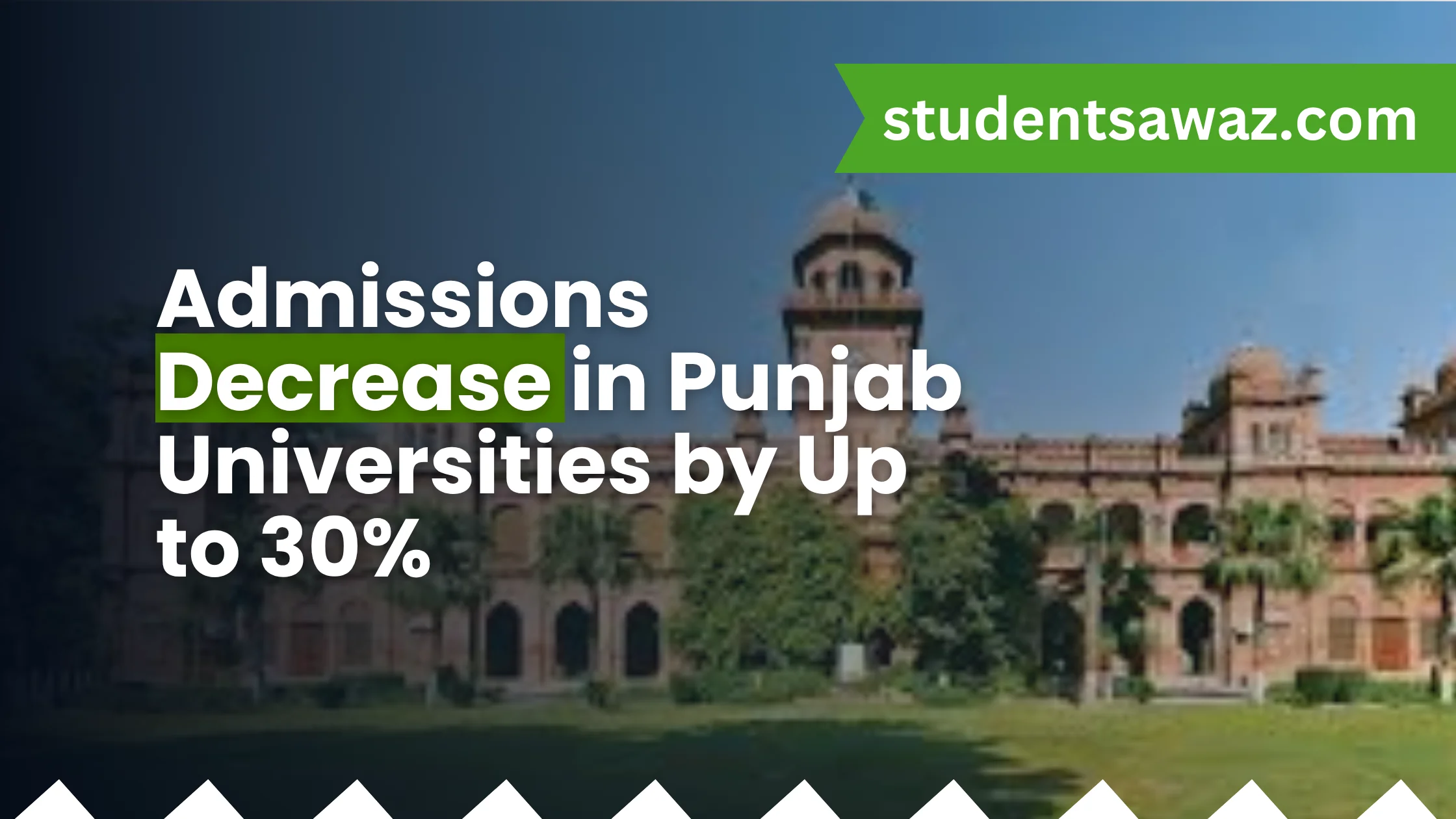Public sector universities across Punjab are witnessing a sharp drop in student enrollment this year. According to the Punjab Higher Education Department, admissions in undergraduate, MPhil, and PhD programs have declined by 20% to 30% in several institutions.
Major universities such as Punjab University Lahore, Government College University Faisalabad, and Bahauddin Zakariya University Multan are among those affected. Smaller universities in Dera Ghazi Khan, Sahiwal, and Narowal are facing even greater challenges, struggling to fill seats in highly demanded programs.
Why Are Punjab University Admissions Declining?
Educationists believe that multiple factors are driving the Punjab university admissions decline:
- Economic Strain
Rising inflation has made even public university education unaffordable for low- and middle-income families. Hostel fees, transportation, and book costs have become a burden. - Outdated Academic Programs
The outdated curricula followed by many universities have left graduates with skills mismatched to the job market. - Lack of Job Opportunities
Students see fewer employment prospects after graduation, discouraging them from investing years in formal degrees.
Impact on Higher Education in Punjab
The decline in admissions in Punjab could have long-term effects:
- Reduced Research Output – The drop in MPhil and PhD admissions limits academic and scientific contributions.
- Financial Strain on Universities – Fewer students mean lower fee revenue, affecting operations.
- Shift Towards Skills Training – More students are choosing diplomas, short professional courses, and online certifications instead of formal university degrees.
Students Turning to Skills-Based Learning
Many young people now prefer skill-oriented education, especially in IT, freelancing, and digital services. The gig economy offers quick income opportunities, and certifications in fields like data science, web development, and business innovation are becoming more appealing.
How Can Punjab Universities Improve Admissions?
To tackle the higher education crisis in Punjab, experts suggest:
- Updating degree programs to meet modern industry demands.
- Offering scholarships and financial aid for low-income students.
- Partnering with industries for internships and job placements.
- Expanding career guidance services.
Conclusion
The Punjab university admissions drop is a wake-up call for policymakers, educators, and parents. Without swift reforms in curriculum, affordability, and job market alignment, the province risks losing a generation of potential scholars. Encouraging industry-linked programs, offering affordable education, and focusing on employable skills can help reverse the trend.
Frequently Asked Questions (FAQs)
The merit varies by department but generally starts around 85% for competitive programs.
Visit the official Punjab University admissions portal, create an account, fill out the form, and upload required documents.
Most public universities require a minimum of 50%, though some programs may have higher criteria.
Yes, for medical-related programs, MDCAT scores are required.
Generally, at least 60% is needed for most undergraduate programs.







